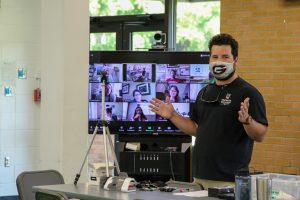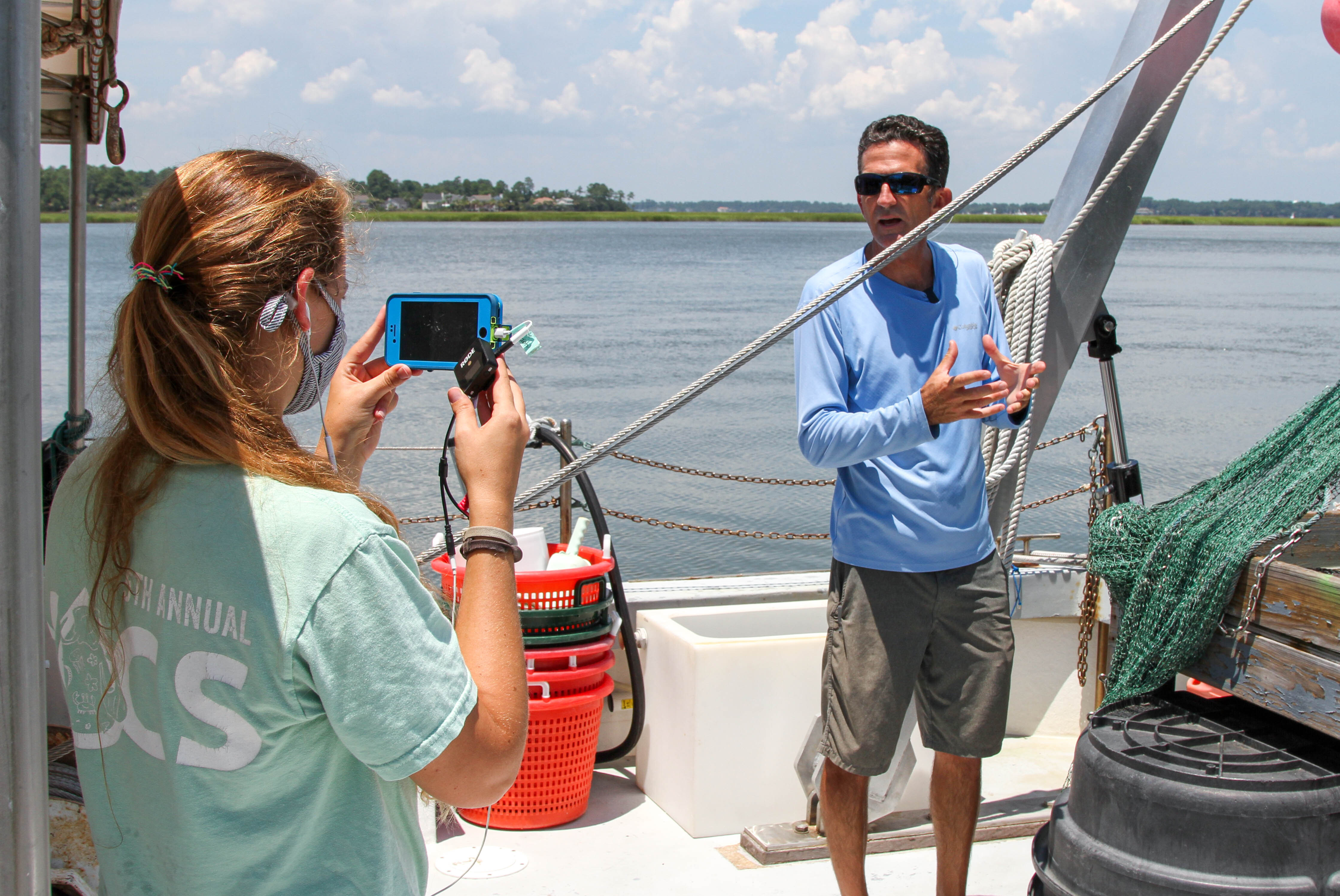When the coronavirus pandemic caused Marine Extension and Georgia Sea Grant to close its coastal facilities in March, Public Program Coordinator Kayla Clark came up with a plan to offer a suite of virtual summer programs that families could enjoy remotely.
Throughout June and July, Clark worked with educators and extension specialists to host a series of online events that have attracted hundreds of participants, reaching new audiences that could not visit the Marine Education Center and Aquarium in person.
“Virtual programming is a pretty new thing for our faculty and staff, and it’s been a bit of a learning curve,” Clark says. “We’ve got the rhythm down now and are looking forward to offering even more virtual programming this fall so that we can continue to engage children and adults.”
Each program includes interactive activities that families can do together at home. The style aligns with the hands-on, feet-in approach that educators at the UGA Aquarium use to facilitate coastal exploration with all ages. Recordings of the summer programs are available for viewing on the Marine Extension and Georgia Sea Grant YouTube channel.
“I’ve been blown away by the engaging material, the way you’ve found a way to connect with kids of all ages and have made them something that we all look forward to,” Brookwood High School teacher and Friend of the Aquarium John Chvatal wrote in an email to Clark. “You have put together lessons that can work for any age group, you have great transitions, interesting information and the enthusiasm and depth of knowledge is really at a topnotch level.”

Trey Cooper, a member of the communications team, led a socially distanced meeting for faculty and staff to learn how to use the new equipment.
The communications team at UGA Marine Extension and Georgia Sea Grant was recently able to purchase multimedia equipment that will boost the quality of the online programs. The new equipment, purchased with funding donated by Friends of the Aquarium, includes wireless microphones, tripods, a webcam, a 360-degree camera and a WIFI hotspot device. The communications team held a socially distanced training session for faculty and staff to explain how to use the equipment and offer tips and best practices on creating video content.
“Our faculty and staff are working together to deliver engaging, educational content during a time when connecting with people can be difficult,” says Mark Risse, director of UGA Marine Extension and Georgia Sea Grant. “Our hope is that with this new equipment, we can expand the type of programming we’re offering and make our facilities and field experiences virtually accessible to broader audiences.”
The new equipment will enable faculty and staff to utilize specific areas of the aquarium where background noise and lighting can be a limiting factor. It will also allow them to host programs about dolphin studies and barrier island explorations in the field. The new microphones can capture dialogue without interference from the wind and other outdoor noises.
Details about the new fall programs will be available on Marine Extension and Georgia Sea Grant’s event calendar in early September at https://gacoast.uga.edu/events/
In addition to increasing virtual programming, the UGA Aquarium will reopen on Aug. 5 for small group visits. Groups of up to 10 people may reserve an hour to visit the aquarium with a marine educator who can talk about the different exhibits and answer questions. The programs will be offered Mondays through Thursdays at 10 a.m. and at 1 p.m. Masks, social distancing and hand sanitizing will be required. The program cost is $50 and online payment is required when the reservation is made. More information is available at https://gacoast.uga.edu/visit-us/

